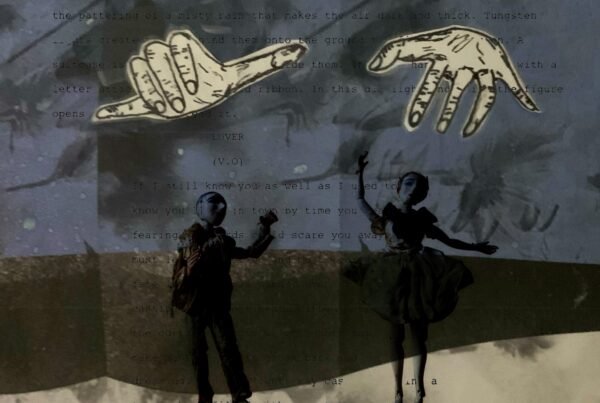Tony Allen is one of African music’s immortals. While his passing last April was unexpected, his legacy lives on with the aptly titled There Is No End. Allen’s legacy was cemented early in his career when he pioneered the Afrobeat sound with Fela Kuti in Africa 70, but the past 2 decades have given us some of Allen’s best work. He’s continued to experiment with cross-genre collaborations, while also crafting some of the finer jazz albums in recent years. His collaboration with Hugh Masekela, Rejoice, was one of the best albums of 2020. There is really no hyperbole in Brian Eno’s claim that Allen is ‘perhaps the greatest drummer who has ever lived.‘ He’s certainly in the conversation.
Before he passed, Allen was working on There Is No End – an album of beats for a new generation of rappers to rhyme on. All of the tracks were created before his passing, and the album’s first single “Cosmosis” was complete. The remainder of the record was left to co-producers Vincent Taeger and Vincent Taurelle to arrange with a diverse range of contributors.
I am skeptical of posthumous records. Not so much because I haven’t enjoyed many of them, but because they are made in the name of an artist who hasn’t signed off on it. In this case though, with a template of his vision in place, I think Tony Allen might have approved of There is No End. This is not an Afrobeat record, and it’s not a jazz record. It is a hip hop record. The live instrumentation isn’t aimed at recreating a boom-bap sound, though, or even the vibe of a band like The Roots. There Is No End is like nothing else.
The playing here is some of the best of Allen’s career, and with the drums front and centre in the mix, his role is much more than that of a sideman. His polyrhythms are sprinkled with the signature high-hats of jazz drummers Max Roach and Art Blakey, two of Allen’s greatest influences. More surprisingly, there is a significant electronic presence in the mix. Supposedly, while creating these tracks, Allen would sit in the studio and play while listening to classic hip hop records on his headphones, not to recreate the beats but to put his spin on them. The results are driving hip hop rhythms with Allen’s crisp snare and high hat filigree. It’s very funky.
On first single “Cosmosis”, Damon Albarn (with whom Allen has worked frequently before) shares writing credits and plays bass, guitar, and keyboards; standout UK grime artist Skepta features, as does Nigerian poet and spoken word artist Ben Okri. The vibe is dark and melancholy, the bass and keys ominous, and the drums frantic. Okri opens with a passage about the bleak state of the world and the important things we must hold onto. He continues:
‘Let’s talk about the art
Of how things break
Things that were hard to make
Things like peace, and love, and need
How the nations shape
How the good is lost to the fake
Oh, brief change by osmosis
Change and the music of Cosmosis‘
It’s heavy stuff. Relief arrives with a sharp 8 bars from Skepta, which is repeated after more reflection on the state of the world by Okri. It’s one of the standout tracks of the year thus far.
Other highlights include “Stumbling Down”, a bassy slow groove with Zimbabwe-born Australian Sampa the Great. Danny Brown lends a hand on the excellent “Deer in Headlights”, and KoreaTown Oddity, who released one of the best underground rap records of 2020 with Little Dominiques Nosebleed, finds the pocket on funky “Rich Black” with some lovely vocals by Laetitia ‘Jaeguar’ Bourgeois.
With one of Allen’s intentions for the album to be a platform for a new generation of artists, it’s fitting that some of the best features here are from relatively lesser-known MCs. North Carolina’s Jah-Monte Ogbon paints vivid images on the wonderfully woozy “Crushed Grapes”; LA’s Tsunami spits grimy street rhymes on “Tres magnifique”; and West Londoner Lava La Rue is stunning on “One Inna Million” with major neo-soul vibes.
At 43 minutes, There Is No End is a generous offering by today’s standard, and the tracklist could have been trimmed a little. “Hurt Your Soul” has a menacing bassline and some fantastic drums, but Nate Bone is underwhelming; “My Own” with Marlowe is utterly forgettable.
For the most part, though, There is No End is a triumph. The drumming is sublime, the production feels fresh, and the featured artists mostly put in memorable performances. It also largely avoids the pitfalls of many posthumous records because of its tight focus. This is not a ‘tribute record’ in the colloquial sense. It doesn’t sound like anything Allen has done before, and yet his vision is all over this. Co-producers Vincent Taeger and Vincent Taurelle, from one finished song and a collection of beats, have given life to the final artistic vision of one of music’s true visionaries.






